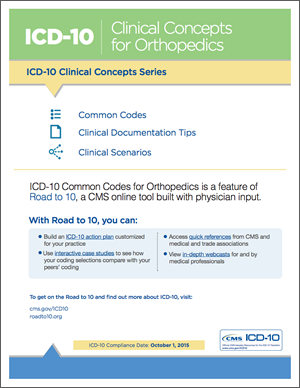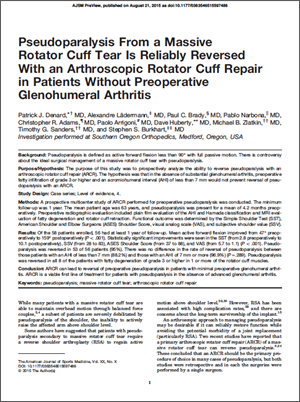
|
RadNews |
IN THIS ISSUE: |
|
|
How to Improve Clinical History in the Age of ICD-10 A recent article from the president and CEO of Advocate Billing LLC entitled "ICD-10 ARE YOU READY?" suggests that clinical history can be improved by documenting specific points, including precise anatomic location, severity / context, and any concurrent conditions that may impact the patient's current condition. They recommend taking the following steps:
According to the article, of the highest volume diagnosis codes used in radiology, 60% are derived from the clinical history-signs, symptoms, and conditions that prompt the imaging study. Of that 60%, more than half are diagnoses related to pain, including chest pain, limb pain, headache, back pain, or simply 'pain'. Additional details pertaining to 'pain' will result in coding to greater specificity, which may reduce the risk for denials under ICD-10. Advocate Billing recommends documenting the following:
To read the full article, as well as find other helpful resources from Advocate Billing, visit RADADVOCATE.COM. |
|||
|
ICD-10 & Workers Comp: Many States Will Not Convert HEALTHCAREFINANCENEWS.COM has reported that many states will not convert to ICD-10 for workers' compensation claims. According to the Workgroup for Electronic Data Interchange (WEDI), an advisor to the Department of Health and Human Services, worker's comp practitioners are not required to switch to the new ICD-10 codes. WEDI reports that roughly half of the states - 21 in total - are ready to switch to ICD-10 for workers' comp claims, while half are not. Here's a breakdown:
The article states, "Those still using ICD-9 on Oct. 1 will be using a different coding system than the providers and vendors with whom they collaborate, which will lead to confusion, according to Risk & Insurance." To read the full article, visit HEALTHCAREFINANCENEWS.COM. For more information regarding your state, download WEDI'S ICD-10 STATE WORKERS' COMPENSATION READINESS LIST. |
|||
|
CMS Publishes ICD-10 Clinical Concepts for Orthopedics |
|||
|
CMS (Centers for Medicare & Medicaid Services) has created a whole page of PROVIDER RESOURCES to ease and aid the transition to ICD-10. One of the main features is a new Clinical Concepts Series. For orthopaedics specifically, CMS has created ICD-10 CLINICAL CONCEPTS FOR ORTHOPAEDICS, a 36-page document containing:
|

|
||
|
To read the full CMS ICD-10 Clinical Concepts for Orthopaedics, CLICK HERE. |
|||
|
New Shoulder Research Including NationalRad Radiologists Published in The American Journal of Sports Medicine In August, The American Journal of Sports Medicine published new research entitled PSEUDOPARALYSIS FROM A MASSIVE ROTATOR CUFF TEAR IS RELIABLY REVERSED WITH AN ARTHROSCOPIC ROTATOR CUFF REPAIR IN PATIENTS WITHOUT PREOPERATIVE GLENOHUMERAL ARTHRITIS by a global team of authors, including two of our MSK radiologists and partners: |
|||
|

|
||
|
The investigation was performed at Southern Oregon Orthopedics, Medford, Oregon, USA, and the study concluded: "ARCR can lead to reversal of preoperative pseudoparalysis in patients with minimal preoperative glenohumeral arthritis. ARCR is a viable first line of treatment for patients with pseudoparalysis in the absence of advanced glenohumeral arthritis." To read the abstract and access the full article, CLICK HERE. If you or any of your orthopaedic staff would like to discuss this study and its findings, please contact us at INFO@NATIONALRAD.COM. |
|||
|
NationalRad | 629-A East Hillsboro Boulevard, Deerfield Beach, Florida 33441 | 877.734.6674 | WWW.NATIONALRAD.COM| INFO@NATIONALRAD.COM
Follow us on FACEBOOK, LINKEDIN and TWITTER to stay in touch with our practice VIEW this email as a webpage UNSUBSCRIBE from NationalRad’s email list |